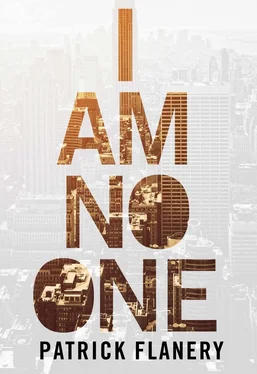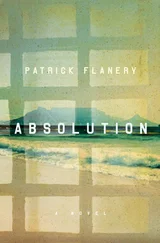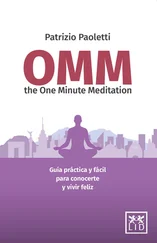When I got home — though it is strange to think of this apartment as home, since for so many years home was a redbrick Victorian house with a beech hedge in the small front courtyard shielding the living room windows from the street — there was another box waiting for me, the same size as the first, with the address written in the same hand. Would there be forensic traces if I turned it over to the police? Had the sender worn gloves? Could the police even be trusted?
I took this second box up in the elevator and opened it as I had the first, again finding some two thousand pages or so filled with web addresses. I put the boxes next to each other, wondering what I should do about them; neither had postage, both were unmistakably intended for me, which suggested there was a clear intention about the delivery, but what it meant or who might be sending the packages I could not imagine. I phoned the doorman, Manu, and asked him who had dropped it off.
‘Sorry, Professor, I don’t know anything about the guy.’
‘What do you mean?’
‘He looked like a bike messenger, you know, and he had one of those exhaust masks on, with the mesh, like a gas mask? And sunglasses and a hat, so I couldn’t tell much about him.’
‘Did he say anything?’
‘Just to make sure you got it.’
‘Nothing else?’
‘Nah. He was kind of unfriendly. Most of these guys, you know, even if they’re in a rush and having a shitty day — oh, sorry, Professor O’Keefe—’
‘Never mind about that.’
‘What I mean is, even when they’re having a really, really bad day, most of these guys, you know, they’ll still be polite, and this guy was seriously not polite. He was a fucking asshole.’
I thanked Manu, hung up the phone, and poured a glass of wine, but then became curious and pulled the boxes out again and sat with them open before me, turning the pages over one at a time, thinking that I would look at every one, at least skim what was printed on each, even if it took me all night. Living in a doorman building, which is to say living with an intermediary between my domestic space and the outside world, offers a considerable sense of comfort and security. One of the unexpected outcomes of living on Divinity Road in Oxford was the profound vulnerability I felt when I moved in and discovered for the first time since leaving my childhood home for college, what it feels like to have someone arrive unexpected at my front door, not to have at least an intercom between me and the outside world. At the worst, when I was living with Susan and Meredith on 75th Street, we got the occasional drunk in the middle of the night pressing our buzzer and waking us up. Sometimes Meredith would be crying at the door by the time I woke and there was one terrible occasion when Susan had taken Meredith on a mother — daughter trip to Amsterdam and I was alone in the apartment and someone pressed the buzzer repeatedly at three in the morning and I was convinced it was not a mistake, that even if the person — it turned out to be a man — was drunk, he knew exactly where he was; in fact this was true, because between bouts of buzzing he stood back on the sidewalk, swaying unsteadily and looking up at our apartment as I cowered behind a curtain looking down at him, and though he did not shout or scream, because this might have attracted the attention of neighbors or police, he was pointing his finger at our apartment, stabbing it in the air, and the more animated he became the more I was convinced he must have been a student I had offended or who believed I had wronged him in some way, ruining his chances for graduate school, or who knows what, because students can, some of them, become incredibly volatile, unpredictable, and even dangerous.
In Oxford, the intrusions on my privacy were more acute; anyone could walk up to my door on Divinity Road and ring the doorbell or hammer his fist, or, as some British people are apt to do, bang the letter slot, though this is something often done by tradesmen or delivery people and always felt to me like the most intrusive act of all, since those strangers’ hands were effectively entering into my home, into my private domestic space. It eventually became so upsetting that I put up a small sign that said PLEASE RING THE BELL and after that the letter-slot banging became much less frequent. Nonetheless, on a great number of occasions the kinds of visitors I had were so alarming that it reached the point where, if I was not expecting someone, if they did not phone or text in advance of their arrival, I simply did not answer the door. Before taking this radical decision, I had had a number of unpleasant encounters on my doorstep. Some were benign: local councillors — or as we say in America, city council members — canvassing to see if residents had any concerns; sometimes political campaigners would come, other times people collecting for charities who would want me to sign up with my bank details to provide a monthly payment to their organization. None of these encounters troubled me unduly. On other occasions, however, I sensed a more malign purpose, or was faced with a man or woman, often working for a corporation, a public utility or broadband provider or something of the kind, who would not take no for an answer and begin to argue with me, wondering why I should not wish to switch my energy supplier when I was undoubtedly paying too much, or why I would not want to get faster broadband when it was being offered at this very special price, and when I told the individual that even if I did choose to change my energy supplier or switch my internet service provider I would not do so in person on my doorstep but over the phone or the internet, they often became incensed, as if I was impugning them, suggesting they were untrustworthy, which was in fact the case. I have always had difficulty in trusting strangers.
Then there were other more ambiguous encounters. Once a woman came to the door, a Polish woman, who claimed to be an art student, peddling her drawings of kittens and kitsch English country houses. I turned her down but she came back every day for a week until I told her that if she came again I would phone the police. I discovered later that she had also tormented my neighbors, even some of my colleagues who lived in other neighborhoods in Oxford. This was in the early days of large numbers of Poles moving to Britain. On another occasion, a day when I was feeling weak, or rather low, or perhaps just tired of living outside of America where things like this did not seem to happen, or at least never happened to me, a couple of Middle Eastern men rang the bell. I had failed to look through the peephole before opening the door and was taken aback when I saw them standing there, bearded and smiling. My first thought was that they were from the local mosque and had come on a community-relations campaign going door-to-door, but they explained they were gathering signatures and contributions to fight against the regime in Syria. I allowed them, standing there on my multicolored Victorian tile walkway, to tell me about the dictatorship and the many human rights abuses taking place in their country. Because, frankly, I was a little afraid of the men, I signed my name to their petition and wrote a check for twenty-five pounds, made out to an innocuous-sounding organization that had ‘Democratic’ or ‘Democracy’ in its name — I no longer remember precisely what it was. The check cleared within the week, though I had thought for a moment after the men left and I was standing in my front hall holding my checkbook and shaking unaccountably that perhaps I should cancel the check, but then worried that if they discovered it was no good these men might return, and who could say what measures they might take to get the twenty-five pounds I had given in apparent good faith. An unpleasant part of my mind insisted that Muslims or Arabs, or that section of the human population where the two groups intersect, are funny about money, or rather that they have a different sense of ethics relating to money than Christians or Jews, and that my failure to give money in good faith might have been regarded as some breach of Sharia law, though that system is not in place in Britain, but Britain was, by halfway through my time there, feeling like a more actively Islamic place than when I had first arrived. These men must have come to my door on Divinity Road after the bombings in London, and by that point I remembered having seen a poster at Modern Art Oxford depicting the city transformed into an Islamic paradise, with minarets and domes rising around the Oxford skyline and women in burqas and niqabs populating the cityscape, reclining on Persian carpets. That poster had inspired a kind of visceral anger in me that I could not entirely understand or explain to myself. At the time, I had few Muslim friends and little knowledge of the religion except the crude versions of it depicted in much of the western media during the early years of the War on Terror. I know now that there are as many kinds of Muslim as there are Christian or Jew or Buddhist or Hindu, and I would like to think that if the same thing happened today my response would be quite different, owing to the very good Muslim friends I have made, and the marvelous colleagues from the Middle East I have come to know and whose work I respect, not to mention the more intimate relationship I had (I still have? The question remains open, if only just) a few years later, a relationship that has altered my sense of Islam more profoundly than I might have thought possible. But at the time, the imagining of Oxford, a great seat of Christian tradition and learning, transformed into the outpost of some new caliphate seemed as grotesque to me as if one were to depict Mecca as the home of a holy roller Evangelical Christian church or a Midwestern shopping mall, and the intersection of that imagined remaking of Oxford with the men on my doorstep campaigning for Syria almost undid me.
Читать дальше












